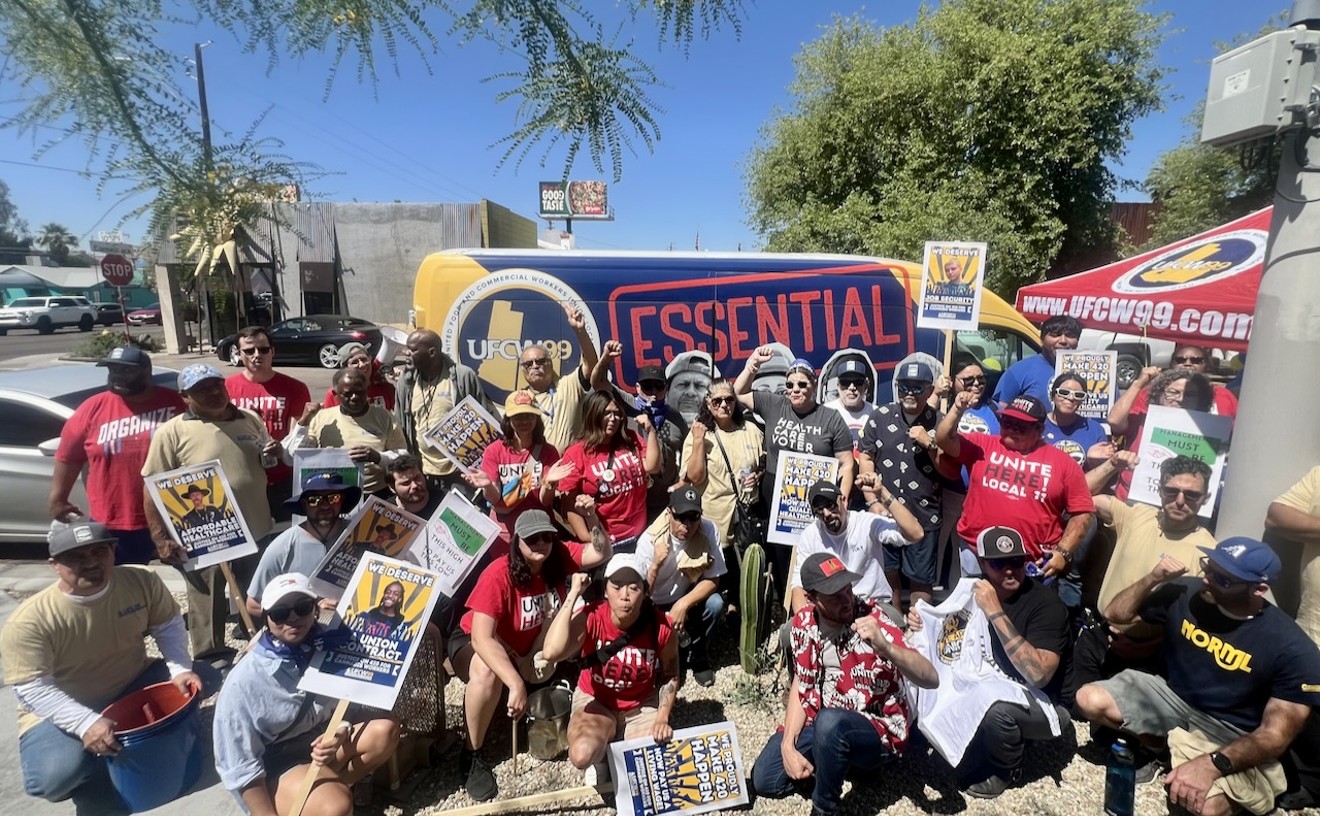Democrats in the Arizona House and Senate have unveiled a package of bills aimed at regulating so-called "dark money."
Arizona's been a hot-spot for the "dark money" issue, which involves organizations being able to dump millions of dollars into elections without having to reveal their donors -- so much so that former Arizona Attorney General Terry Goddard has called the state the "Cayman Islands for dark money."
The package of bills proposed by Senator Martin Quezada and Representative Bruce Wheeler include tougher regulations on political spending, including disclosure of the top donors behind a group.
"In 2014, there was an estimate of $8.6 million in dark money spent in Arizona," Quezada tells New Times. "That's $8.6 million where nobody knows for sure where that money came from. A lot of races were decided by these expenditures."
These proposed reforms were actually recommendations from Goddard, who lost the 2014 election for Arizona Secretary of State with a campaign focused on blasting dark money.
Here are some of the main points proposed in these bills:
- Requires the disclosure of the four largest contributors to an independent expenditure committee, plus a specific disclosure if any of these funding sources are from another state.
- Current law requires independent expenditure advertisements to have a the "paid for by" disclosure to include the names and phone numbers of the political committees behind it. This bill would also require the names and numbers of the largest contributors, whether they be corporations or unions.
- Would make spending money on an election in Arizona an act of business in the state. Therefore, out-of-state companies would have to register with the state to do business in Arizona before spending money on campaigns.
- Would authorize the Citizens Clean Elections Commission to conduct audits on the corporations or unions that make independent expenditures in the state, to make sure they're complying with all Arizona laws.
"It's just a start, basically -- a start in the right direction, to shine a light at where the money is coming from," Quezada says.
In addition to this package of bills, another Democrat, Representative Ken Clark, is proposing a bill that would force utility companies to disclose election-related contributions. Local utility company APS was said to be a big "dark money" influence in the 2014 elections for the state's corporation commission.
Arizona State University's Morrison Institute for Public Policy recently took a look at dark money in Arizona, saying both parties at the state legislature have been concerned about the issue. Whereas only Democrats had previously supported efforts to regulate dark money, "By 2014, though, members of both parties expressed support for greater disclosure," the paper says.
Quezada's not overly optimistic that the Republican-controlled legislature will help pass these bills, but he's not ruling it out.
"There might be some willingness to actually give this a hearing," he says. "There was dark money spent against many of the Republican members of the Legislature."
Got a tip? Send it to: Matthew Hendley.
Follow Valley Fever on Twitter at @ValleyFeverPHX. Follow Matthew Hendley at @MatthewHendley.










